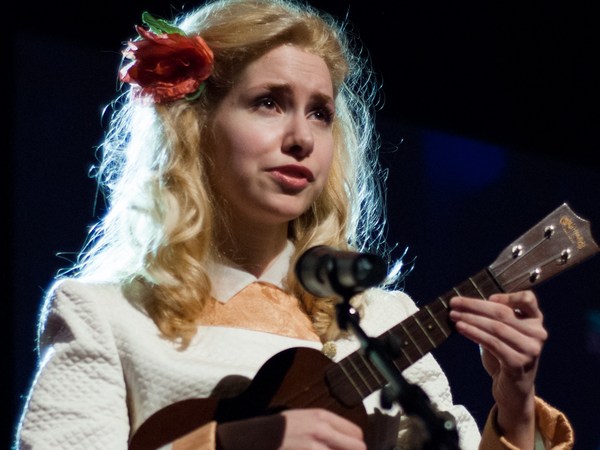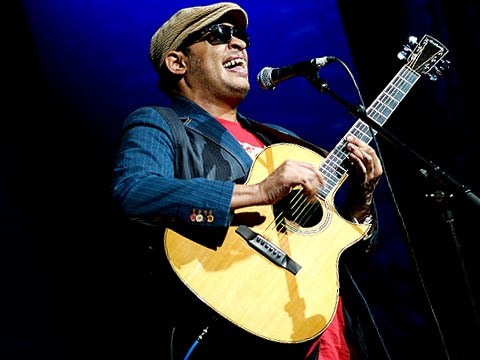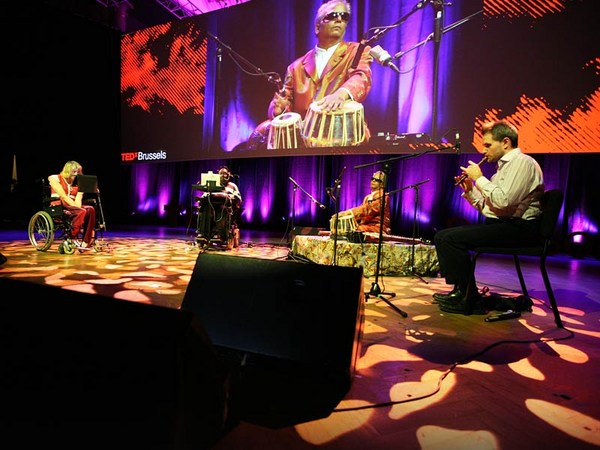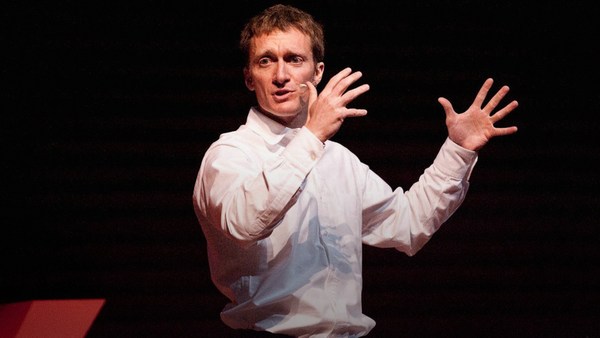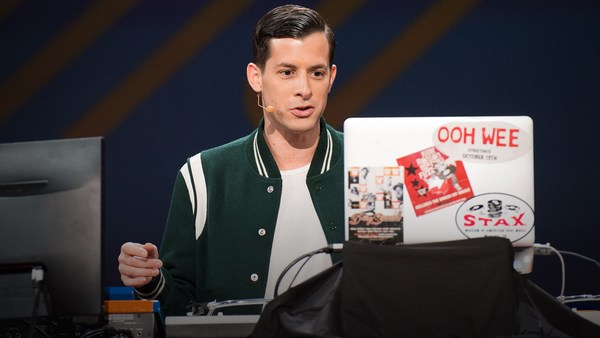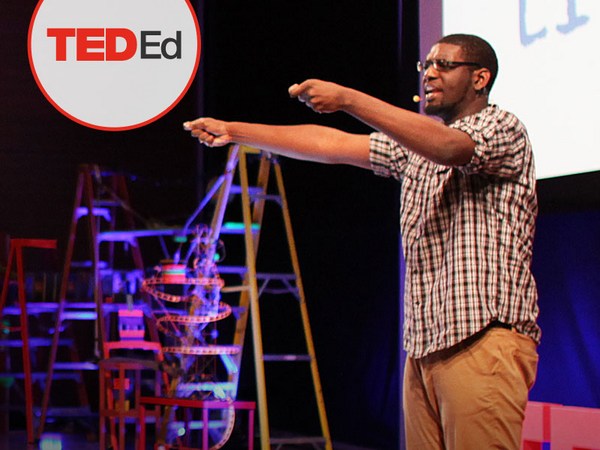Let ’ s start with some good news: there is no planet to be saved. We need to be saved, in order to keep living in this wonderful planet we call Earth; but would we look at it from the space, we would actually call it “Sea Planet”, or “Ocean Planet”, as its dimensions are covered seven times - so seven-tenth of its surface - with blue, oceans, seas. So I ask you to do an exercise: take two deep breaths together. Now, all together, let’s take the first one. (Breathes) And then the second one. (Breathes) You see, this second breath is a gift from the sea, from the oceans, and half of the first, mind you - only half of the first breath comes from forest, so from chlorophyll photosynthesis. 70% of the oxygen we breathe comes from a different photosynthesis, made by microorganisms that live in our oceans, so in seven tenth of our planet: it's called phytoplankton, and thrive in all the blue surface that covers our planet Earth. And it is fed by whales, whales’ migrations are its food source: they take it to remote areas, drop it in their stools, and mix it with their huge dives. That's why we depend on whales to keep living on this planet; we depend on bees, also; we even depend on worms, as if worms die, we die too. And if oceans will die, we will extinguish, period. Phytoplankton decreased by 50% in recent years, and this percentage is correlated to oxygen: over the last 50 years, oxygen decreased by 40%. Precisely because the delicate balances our planet stands on are failing. You are now looking at a “Medi-caine”, a so called “Mediterranean hurricaine ”, and this is the main reason why I am here today here in Bassano. I was sailing there, between Calabria and Sicily. We started an operation, called “Siso operation”. It took its name from a cachalot that sadly dies trapped into an illegal fishing net, called “Spadara”: these nets have been prohibited for 40 years now by United Nations, EU and Italian law. They kill whales, cachalots, dolphins, turtles. They are tens of km long. And in 2017, the body of Siso hit Capo Milazzo shores, and smashed the evidence before our eyes. From that moment on we started a fight with our fleet, armed with volunteers and passion. Year after year, we managed to increase the number of ships and volunteers, and this year we reached our real goal: a big confiscation, with the support of Coast Guard, the Military Finance Police and Italian Authorities. We confiscated 17 km of these 42 meters tall walls of death, thus zeroing the cachalots casualties that every passing year in the past used to be one, two, up to three So this year, in the Mediterranean Sea, our whales and cachalots swum freely in the sea, without dangerous nets. That's why I brought you a video, to take you with us on our ships (Video) "Sea Shepherd" started defending and protecting our seas 44 years ago, we do it thanks to our ships, our volunteers’ passion, and cameras to witness and share publicly destructions and illegal massacres from Mediterranean Sea to Atlantic Ocean and Australia, and then back to Pacific Ocean. And that’ s where a story began 200 years ago, a story we could take inspiration from. It is called “Sinking of a ship”. We never celebrate this kind of thing, except in some rare cases. This is one of them: after seeing its relatives and loved ones slaughtered, along with its entire community, a cachalot decided not to flinch away, but stare at the harpoon the whaler that killed its family, filled its community with blood, and attack it, literally smash against it until it sank. This history called this cachalot “Moby Dick”, or “Mojoadick”, and it is high time we take inspiration from it, because a mindset shift is in store for us, from think about ourselves as ecologists busy saving a planet that does not need to be saved. to reconsider ourselves as fighters that will try to save the human species. In such a scenario, the Mediterranean is the world's most exploited sea: seven-tenth of fish species are over-fished, they will eventually disappear, as they are killed quicker than they can reproduce. If we also add the global warming, we know that intensive farming is no longer sustainable, neither is fossil coal, nor sea farming, sea farming is a farming of fishes that eat other fish. Consider this: we have to fish wild fishes to feed farming fishes, an utter nonsense. Mind you, tuna farming, fattening one kilo of Malta's famous red tuna, which are currently forced in cages, takes five kilos of wild fish. Let’s then also add environment pollution, fuel spillage, sea acidification, and finally plastics, which not only is everywhere in the sea, but microplastics, nanoplastics, are also in every terrestrial, sea or air animal. That's why it is a big responsibility of ours, in this moment, to take inspiration for our choices. The Second World War was fought here, in Bassano del Grappa. My grandfather lived near the Old Bridge, here in Bassano; I was born here in Bassano, my mother was a partisan. She was fighting with him: my mother was a little girl, and she would bring messages in her braids from the front in Monte Grappa to here in the city. They are treated as heroes; we can live in a free country thanks to these heroes. Now it is our turn to be remembered by our children or nephews either as crazy criminals who destroyed their civilisation and their way of living or as heroes that chose to change it, and fight for its survival. It's up to you, folks. Thank you. (Applause)
